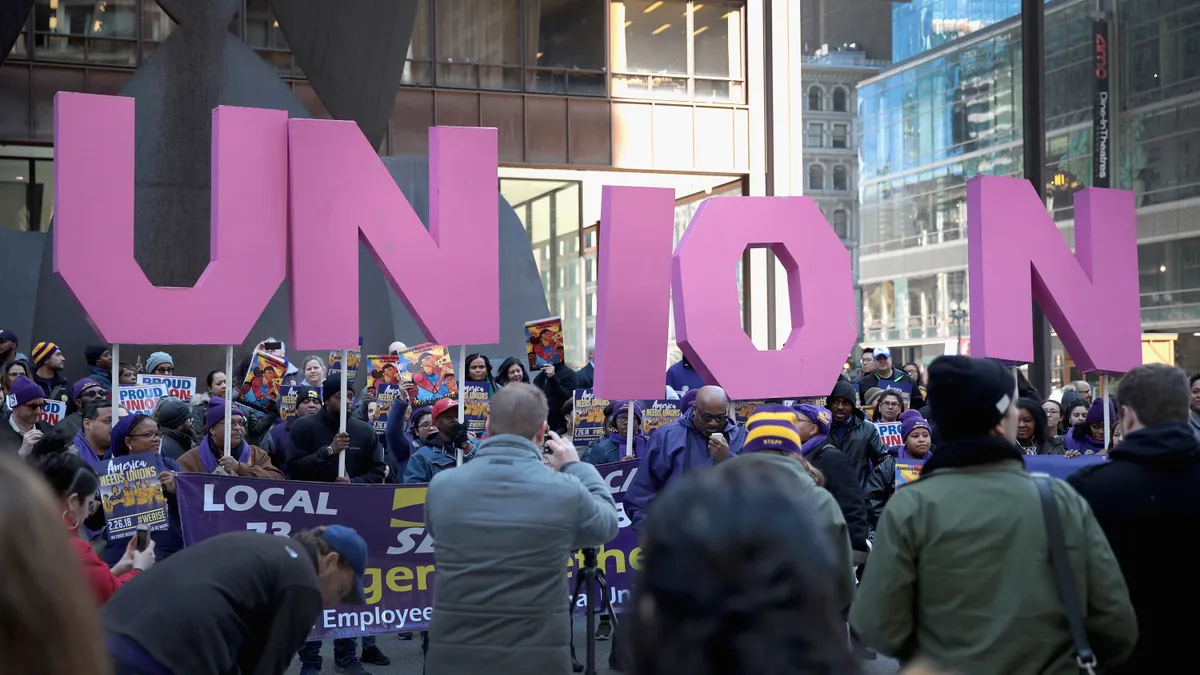The National Labor Relations Board issued a final rule Thursday that removes barriers for union elections and should cut down the time it takes to proceed from petition to election and to reach a resolution in post-election litigation, the NLRB said.
The new rule largely returns the election process to one established in 2014 but that had been altered in 2019 by Trump-era amendments. A separate companion rule also approved Thursday halts the implementation of two provisions of the 2019 regulations that had been contested in court but were set to go into effect Sept. 10.
“It is a basic principle of the National Labor Relations Act that representation cases should be resolved quickly and fairly,” NLRB Chairman Lauren McFerran said in a news release. “By removing unnecessary delays from the election process, the new rule supports these important goals, and allows workers to more effectively exercise their fundamental rights.”
Per a fact sheet issued by the NLRB, the new rule will:
- Speed up the pre-election hearing process
- Require employers to share election information more quickly
- Make hearings more efficient; and
- Allow elections to be held sooner.
The new rule is expected to be published in the Federal Register Aug. 25 and will go into effect Dec. 26, the NLRB said.
The NLRB had a record-breaking rise in new cases in fiscal year 2022, with unfair labor charges and union representation petitions increasing 23%, from 16,720 to 20,498 — the biggest single-year increase in 46 years and the greatest percentage increase in 63 years, NLRB said. FY 2023 is on track to see the second-largest increase in filings since FY 1959, NLRB said.














